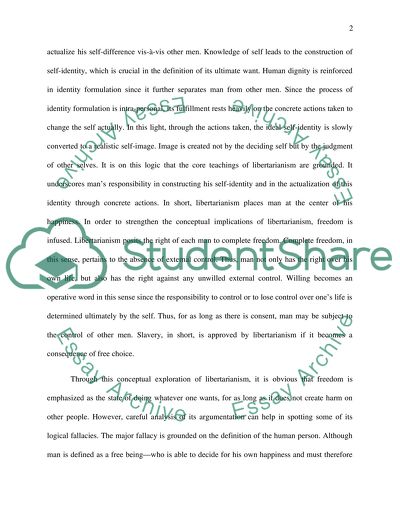Cite this document
(“Libertarianism Essay Example | Topics and Well Written Essays - 1000 words”, n.d.)
Retrieved from https://studentshare.org/philosophy/1434375-explain-and-evaluate-yplibertarianism
Retrieved from https://studentshare.org/philosophy/1434375-explain-and-evaluate-yplibertarianism
(Libertarianism Essay Example | Topics and Well Written Essays - 1000 Words)
https://studentshare.org/philosophy/1434375-explain-and-evaluate-yplibertarianism.
https://studentshare.org/philosophy/1434375-explain-and-evaluate-yplibertarianism.
“Libertarianism Essay Example | Topics and Well Written Essays - 1000 Words”, n.d. https://studentshare.org/philosophy/1434375-explain-and-evaluate-yplibertarianism.


